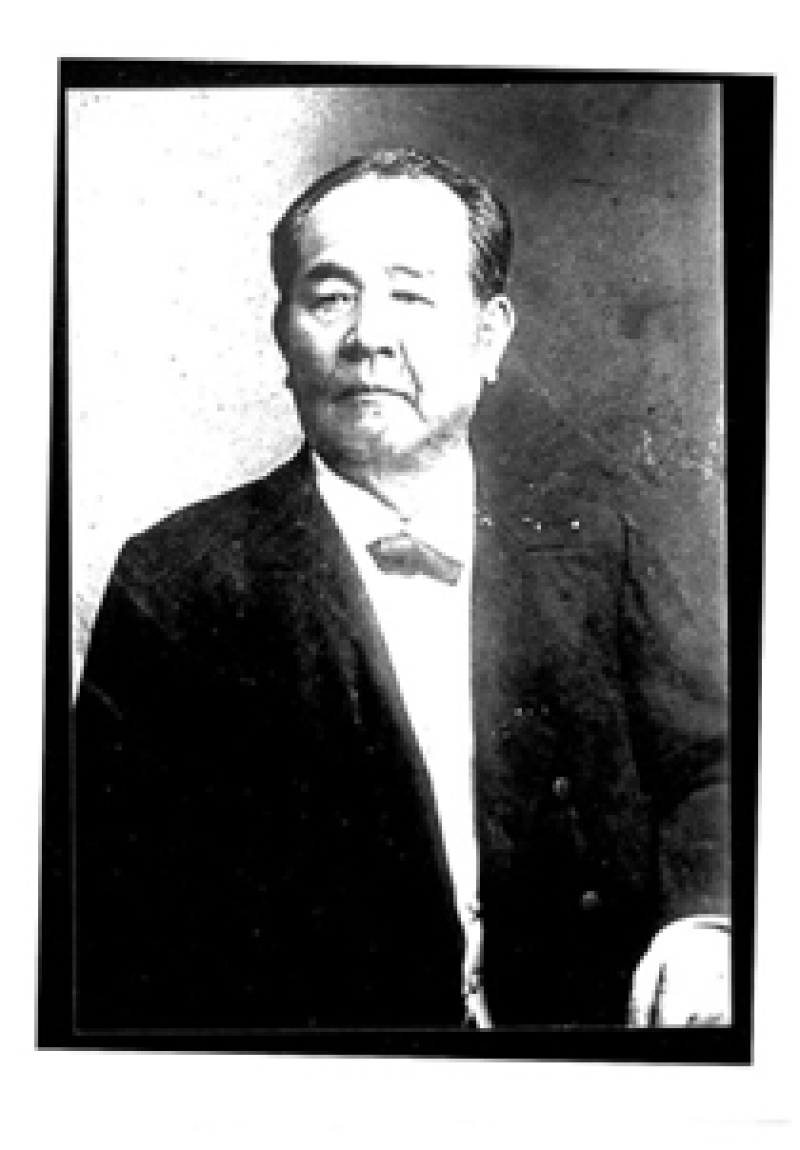Brad Richardson Memorial Lecture Speaker: Gil Latz
Vice Provost for Global Strategies and International Affairs
Department of Geography
The Ohio State University
Discussant: David Welch
Department of Political Science
The University of Waterloo, Balsillie School of International Affairs
Title: "Effective Leadership in Japan: the Case of Shibusawa Eiichi, Entrepreneur and Philanthropist"
Schedule:
Doors Open: 4:15
Opening Remarks: 4:30-4:45
Lecture with Q&A: 4:45-6:45
Reception: 6:45-7:30
Flyer: Latz-Welch Flyer
Abstract: The presentation addresses possible lessons for twenty-first century Japan by reviewing the leadership and vision of Shibusawa Eiichi (1840-1931), a significant figure in modern Japanese history who played a key role in the country’s transformation into a modern nation.

Eiichi is widely regarded as a key leader in the development of Japan as a modern country, as a dynamic force in the industrial world, and as a person dedicated to social and public welfare. To realize a new and more appropriate social system for the country, Eiichi argued that Confucianism legitimizes economic activity as a rational act, laying the foundation for Japanese leaders, and society-at-large, to embrace the need for change from feudal to modern. Such neo-Confucian thought included a distinguishing characteristic: all social organizations are expected to define their relationship to the public interest, and to do so hand-in-hand with their mission or profit-seeking agenda.
There is a remarkable similarity between the national challenges tackled by Eiichi throughout his long life—values, citizenship, and world affairs—and those facing Japan today. Were he alive, Eiichi would not be alone in arguing for discussion of these factors and their contribution to Japan’s social cohesion. His voice is noteworthy, however, because of the unique, Confucian-based principles he brings to such discussion.
Eiichi approached Japan’s modernization based on a framework that recognized roles for entrepreneurship as well as for philanthropy, particularly in relation to government, business, and NGO collaboration. The presentation incorporates this framework to address two themes: first, the role of historical analysis in understanding Japan’s realities, identifying the challenges and opportunities facing modern Japan; and second, Japan’s future, by identifying practical strategies for the emergence of a “New Meiji.” Specifically, by introducing ideas related to individual empowerment and better governance, as well as venture philanthropy, I identify the elements that might comprise new international and regional development thinking that creatively address various challenges and opportunities facing Japan in the first quarter of the 21st century.
The presentation is based on: G. Latz. “Effective Leadership in Japan: The Case of Shibusawa Eiichi”. Japan's Future and a New Meiji Transformation: International Reflections. Ken Coates, Kimie Hara, Carin Holroyd, Marie Soderberg, ed. Routledge, 2019, pp. 120-29.
Gil Latz is Vice Provost for Global Strategies and International Affairs, and Professor of Geography, The Ohio State University. His graduate research training took place at the University of Chicago (MA, 1978; PhD, 1986, Geography) and the University of Tokyo (1980–1984). He has longstanding research interests in the comparative dimensions of resource management and the conservation of cultural landscapes in East Asia, North America, and Europe. For the past fifteen years his advisory affiliation to the Shibusawa Eiichi Memorial Foundation has included study of entrepreneurship, philanthropy, and civic leadership and the role they have played in Japan’s modernization process since the late nineteenth century. As Ohio State’s senior international officer, he currently leads strategic planning efforts to address the international dimension of the university’s mission by identifying goals and strategies that fully integrate global research, teaching and service across the campus, and by expanding the university’s global reach and reputation.
Free and open to the public
This event is supported by a U.S. Department of Education Title VI grant to The Ohio State University East Asian Studies Center, the Brad Richardson Memorial Fund, and the Japan Ministry of Foreign Affairs through the Consulate General of Japan in Detroit.
